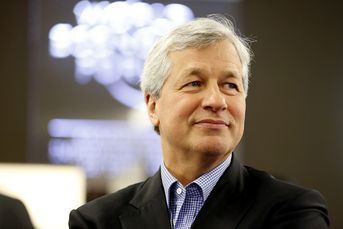Adapting advisers’ marketing to a new era

New regulations and the changing technological and media landscape raise many vexing and interrelated questions for advisers, their firms and the investing public.
To those old enough to remember when communications concerning investments and personal finance were expected to be serious, the notion that enormous numbers of people would seek out humorous, fast-paced 60-second videos on the subjects seems implausible. Yet as InvestmentNews’ Nicole Casperson reported recently, TikTok videos tagged #personalfinance have attracted 3.5 billion views from the more than 1 billion active users of the site. More people are interested in TikTok’s personal finance content than its videos about cooking or health.
Given this enormous public demand from tech-savvy millennials and Gen Z, as well as boomers, it seems inevitable that advisers and their firms will want to use bite-sized videos to communicate — as well as whatever new mobile apps appear in the future to capture the public’s attention.
The Securities and Exchange Commission’s new rules for registered investment advisers concerning advertising and the commission’s shift to principles-based provisions can accommodate “the continual evolution and interplay of technology and advice.”
Still, the new regulations and the changing technological and media landscape raise many vexing and interrelated questions for advisers, their firms and the investing public, as well as for regulators and legislators. For example:
How to bridge the regulatory divide? The existence of two regulatory realms for those broadly defined as “financial advisers” creates confusion. While both sides continue to wage lobbying wars over whether it’s possible to bring advisers who sell products and advisers who don’t under one regulatory umbrella, the RIA side is now freer to communicate, while the broker-dealer side isn’t. If more reps drop their licenses, will the Financial Industry Regulatory Authority Inc. be pressured into changing its advertising and communication rules? That begs the next question.
Do broker-dealers want their registered reps to become media free agents? Whether their registered reps are employees or regulated independent contractors, broker-dealers are responsible for regulating their reps’ communications. They also bear the financial responsibility for their representatives’ actions. What if someone were to watch a rep’s TikTok video, open an account to trade on what seems to be a recommendation and then lose money? On the other hand, if firms prohibit their reps from communicating openly via social media, or control the communications so as to make them seem inauthentic, how will registered reps market themselves?
Should investor protection change? Spawned by the stock market crash of 1929 and subsequent congressional hearings revealing how Wall Street contributed to the public’s speculative frenzy, our current securities regulatory regime is intended to promote disclosure and prudence. How should the new media’s spicy stew of financial information, advice and entertainment be regulated? Should it? The recent social-media-fueled frenzy involving GameStop trading underscores the regulatory challenge. A wrongful death lawsuit filed by the parents of a young Robinhood client who committed suicide because he thought he owed $730,000 due to options-trading losses shows the human cost.
Clearly, for everyone touched by the financial advice business, the brave new media world is uncharted territory.
Learn more about reprints and licensing for this article.







